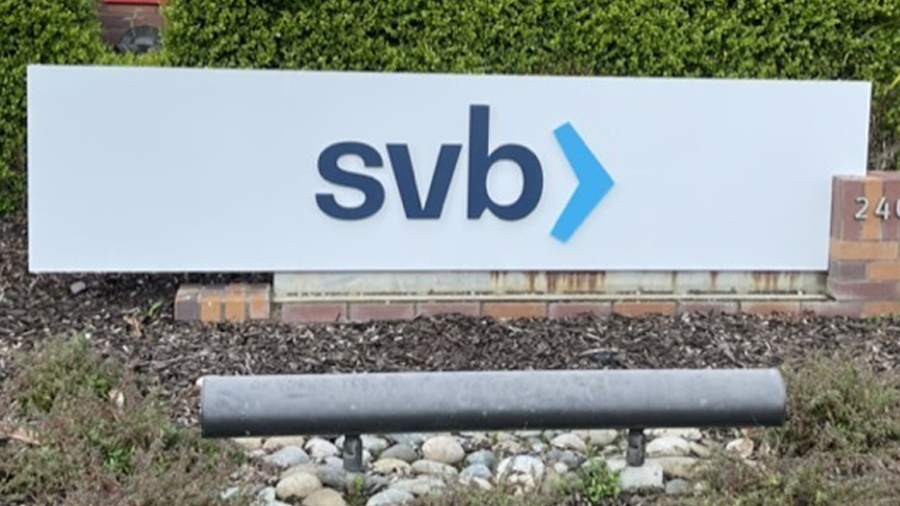First Citizens BancShares has agreed to buy the loans and deposits of the failed Silicon Valley Bank — the preeminent bank for tech startups.
The Federal Deposit Insurance Corp. announced the deal late Sunday night.
Search less. Close more.
Grow your revenue with all-in-one prospecting solutions powered by the leader in private-company data.
The Silicon Valley Bridge Bank — which SVB became after it fell into receivership — had approximately $167 billion in total assets as of March 10, the FDIC said in a statement.
First Citizens BancShares’ deal includes the purchase of about $72 billion of the bank’s loans and other assets at a discount of $16.5 billion and $56 billion worth of the bank’s deposits. Approximately $90 billion in securities and other assets still remain in the receivership.
The 17 branches of Silicon Valley Bridge Bank will open as First–Citizens Bank & Trust Co. today, the FDIC said.
The Raleigh, North Carolina-based bank had earlier been reported as a suitor, along with Valley National.
The sale will bring some closure to one of the most dramatic bank collapses in U.S. history.
A timeline
On March 9, Silicon Valley Bank saw its stock price plunge after announcing it would sell $2.25 billion worth of stock — including $500 million worth of shares to private equity firm General Atlantic — to shore up its balance sheet.
The announcement led to deep concern around the venture world — SVB has relationships with more than 50% of all venture-backed companies in the U.S. and countless VC firms — about the bank’s liquidity and balance sheet strength and led to a run on withdrawals.
The bank unsuccessfully tried to sell itself and was shut down by banking regulators the following morning.
The bank takeover spread fear in the startup realm as many were left to wonder what would happen to their deposits and if they could do simple things such as meet payroll. However, about 48 hours later, regulators announced a plan to ensure depositors at the bank.
SVB’s collapse was due to both bad decisions and bad timing. During the recent venture capital boom, the bank was flush with cash as private companies raised huge sums of fresh capital at sky-high valuations. That cash was stuffed into the bank.
However, as the market has slowed with rising interest rates, that cash has dried up as deposits by startups dipped.
At the same time, SVB had decided to invest in long-term, higher-yield bonds. That decision proved disastrous, as when customers started to withdraw cash, the bank had to sell its $21 billion bond portfolio at a $1.8 billion loss.
The bank had hoped its proposed financing would fill that gap, but instead just spooked many of its customers.
A history
SVB was the dominant bank for tech startups and venture debt in the U.S., cultivating a reputation for close-knit relationships with the power brokers of venture and taking chances on young startups that most banks wouldn’t have the time of day for.
The bank was founded in 1983 by Bill Biggerstaff and Robert Medearis with an eye toward backing VC-backed companies — a still relatively new phenomenon at the time. From there it grew, even surviving the California real estate crash in the early 1990s. It provided banking services for up-and-coming tech companies such as Cisco Systems and Bay Networks.
Now, after 40 years, startups will have to look somewhere else for their financial needs — if such a place exists.
SVB wasn’t just a bank for VC-backed startups — it was “the” bank for such companies. One of the reasons SVB became the bank of choice was its venture lending practice. The bank had about $74 billion worth of loans on its books, with about 20% of that being from venture debt, according to those in the industry.
SVB also had a large private wealth management division that had significant synergies with its commercial banking operations — helping the same VCs and entrepreneurs with home mortgages and personal loans after it just helped their startup close a big financing round.
The SVB failure is the second-largest bank collapse in U.S. history. The largest collapse of a financial institution was Washington Mutual, which fell in 2008.
Related reading:
- Silicon Valley Bank Stock Plunge Sends Jitters Through The Startup World
- Silicon Valley Bank Fails, Is Taken Over By Banking Regulators
- Silicon Valley Bank Collapse Leaves Tech Industry Scrambling For Answers
- Silicon Valley Bank Bet Big On Biotech. And Now It’s Gone.
- Guaranteeing SVB’s Deposits Was The Right Thing To Do
- SVB Puts Subsidiaries Up For Sale As HSBC Buys UK Unit
- Silicon Valley Bank’s Collapse Will Leave A Big Hole In the Startup World
- SVB Kept Up With Fast-Paced Health Startups. The New Normal May Be Slower
- SVB’s Demise Cools An Already Chilly Climate For Startup Funding
- SVB, Signature Shutdowns Not Chilling Crypto
- In Their Own Words: What Silicon Valley Bank Meant To The Valley
- Regulators Announce Plan To Ensure SVB Depositors
- Silicon Valley Bank’s Collapse Will Leave A Big Hole In The Startup World
- In Their Own Words: What Silicon Valley Bank Meant To The Valley
Clarification: The original article was updated to reflect the close of the sale.

Stay up to date with recent funding rounds, acquisitions, and more with the Crunchbase Daily.






![Illustration of a hand depositing a coin in a bot. AI funding [Dom Guzman]](https://news.crunchbase.com/wp-content/uploads/Generic-ai-funding-470x352.jpg)
![Illustration of a guy watering plants with a blocked hose - Global [Dom Guzman]](https://news.crunchbase.com/wp-content/uploads/quarterly-global-3-300x168.jpg)
67.1K Followers